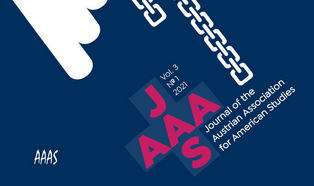This year’s Fulbright Prize in American Studies has been awarded to Dr. Marijana Mikić for her dissertation, entitled “Race, Space, and Emotion in Twenty-First-Century African American Literature,” which she developed during her time as PhD Researcher on the Narrative Encounters Project and completed in the English Department at the University of Klagenfurt in 2022. The dissertation combines insights from cognitive affective research, narrative theory, African American studies, and Black geographies to examine how African American storyworlds interrogate emotions as varied as fear, hope, shame, guilt, anger, and grief as bound up with racial ideologies and the geographic enforcement of these ideologies. Congratulations Marijana!
Marijana was honored for her achievement on 20 October 2023 at the annual conference of the Austrian Association for American Studies (AAAS), “Versions of America” at the University of Klagenfurt. You can watch the interview here to learn more about Marijana’s dissertation.
The Fulbright Prize in American Studies is based on an annual competition managed by the AAAS. It is a means of acknowledging the enduring importance of American studies and the role of innovative research by young academics in Austria in contributing to the fulfillment of the Fulbright Program’s mandate to promote mutual understanding between the peoples of Austria and the United States of America. The purpose of this award is to recognize superior academic achievement in the field of American studies (Amerikanistik) in the broadest sense of the word and hence includes all relevant ancillary disciplines and departments at Austrian universities.









